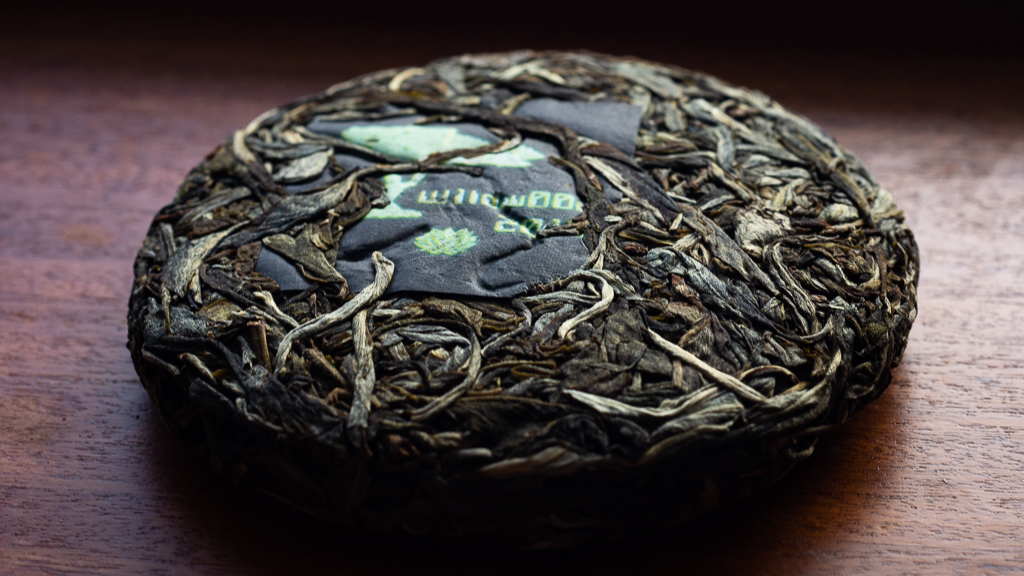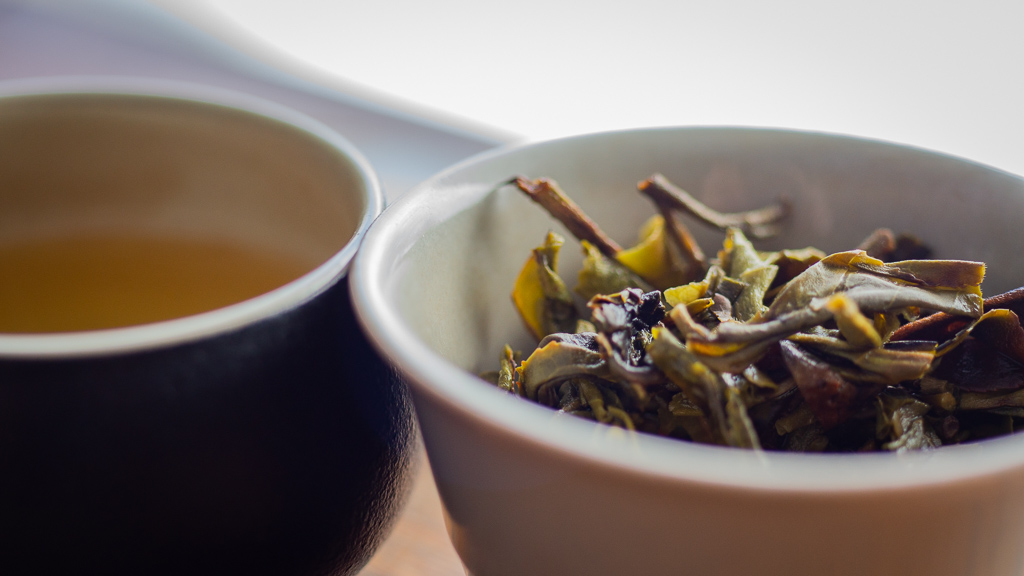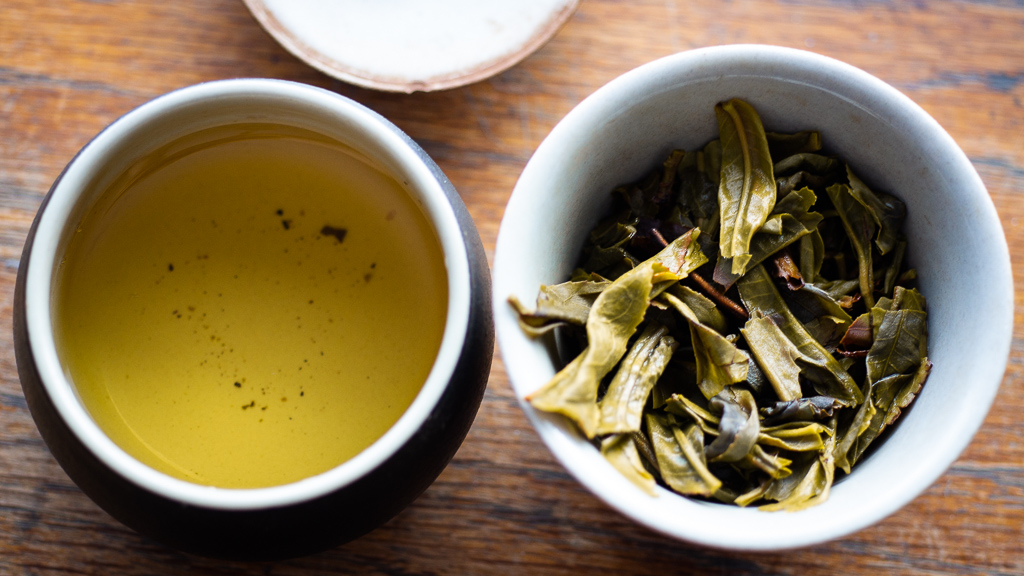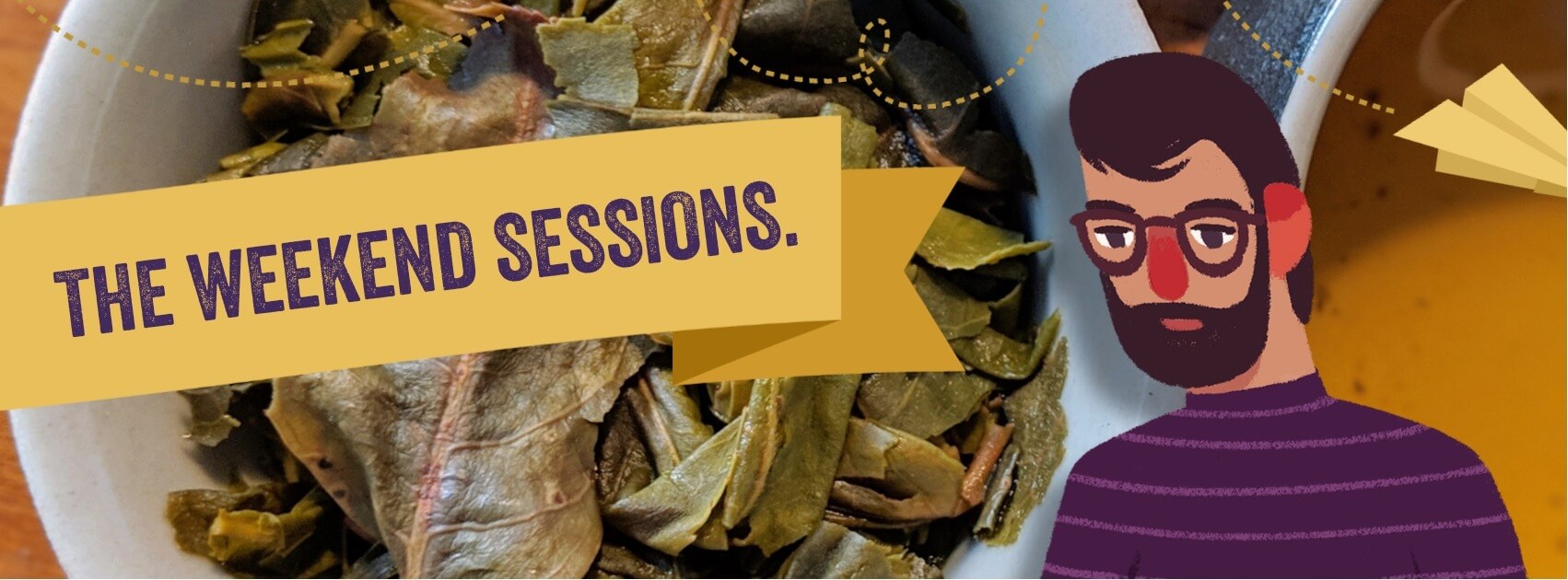Last year I heard lots of hype around Crimson Lotus Tea’s Wildwood sheng puerh, but it was one of those teas that for one reason or another I kept meaning to try out then getting side tracked. Well… in this case I know exactly why I never picked it up. At $75 USD for a 200 gram cake it just hits a weird price point for me that causes my brain to melt. It’s too pricey for me to blindly cake, but based on other reviews I’m so sure I’ll end up loving it and buying a cake anyway that sampling seems like tossing my money away. I’ll go back and forth on this for months, adding a cake to my cart, then removing it then adding a sample, then inevitably removing both from my cart, buying something else and repeating this process over and over. Anyways, this is a tea review, not a look inside my brain. The point is, the 2019 pressing of Wildwood is a 100 gram cake that sells for about $45 USD. Yes, the price per gram is higher than the previous year, but the lower buy-in cost makes it much easier for me to stomach, so I ordered this cake (I think) the day it went up on the site. Don’t analyze it, I’m aware this way of thinking doesn’t necessarily make sense, but it’s the way it goes.
If you want to know a bit more about where this tea comes from, check out this video from Crimson Lotus. I always love the videos they make and take great joy from watching them as I try to pick out my teas.

Initial Impressions
Well, it’s a 100 gram cake! This thing is tightly compressed and very difficult to break open with my pick. The dry leaves are predominantly floral smelling. To be honest, I’m not great with different floral scents and sometimes rely on my wife for those notes, but she is sleeping, so I’m going to say it’s an orchid aroma. This may or may not be accurate. After a rinse I am getting saskatoon berries, honey, and apple. Despite being so tightly compressed, the leaves are coming apart fairly quickly after a short rinse.
For this session I am using 3.87 grams of leaf in my 55ml gaiwan, 90C water, and infusion times starting at five seconds and increasing five for each additional steeping.

Infusions 1-3
The first infusion doesn’t have much of a taste, but there is a good huigan and a nice full and smooth body. Infusion two opens up quite a bit, with notes of cinnamon, baked apple and seaweed. Infusion three comes on sweet, quickly becomes powerfully astringent, then back to sweet for the finish. The mouthfeel is thick, oily, and highly pleasing.

Infusions 4-6
So far Wildwood has been nice but from infusion four on it starts to get interesting. As a bassist I know that while highs and lows are important, it’s really the low-midrange frequencies that help you cut through the mix and get people dancing – and these important frequencies are often overlooked. It’s the same with puerh (at least, it is to me). There are many teas out there that have a brilliant top end sparkle, or a deep low end oomph, but they frequently lack the mids that give it real presence. This midrange is really hard for me to describe and is more of a feeling than something I can pin down, but I know it when I taste it. Wildwood has it in spades. The taste is rich and full but for the most part I can’t find any descriptors that make sense. For real tangibles I can pick out a bit of pear and occasionally some white tea like floral and earthy qualities. Bitterness is up but manageable, the seaweed note is up, and there’s a light fresh cut grass aroma. None of these notes do anything to describe how this tea is though.

Infusions 7-13ish
Around infusion eight or so Wildwood becomes both incredibly savory and very vegetal in taste. Some floral notes still peak through on occasion and bitterness increases until around infusion ten then disappears. Unfortunately for this review, and more on this below, I’ve let my mind wander a bit here and haven’t taken great notes or paid too much attention to getting things right. Flavour drop-off started around the eleventh infusion and wrapped around the thirteenth. Huigan and mouthfeel remained strong, outlasting the upfront flavour by a solid three or four infusions, and I think I wrapped it up at the fifteenth or sixteenth steeping.
Final Thoughts
Most of the time I love writing reviews. A solid chunk of my enjoyment of tea comes from taking notes, comparing them to other peoples, being analytical, trying to find the right descriptors to translate as best as I can things that aren’t always translatable. I don’t think Wildwood is that kind of tea though. Halfway through my session I felt myself wishing I wasn’t writing the review or trying to think about the tea at all. I think this puerh would be best enjoyed in silence with my brain turned off, letting the tea be what it is instead of thinking about where it is, where it’s going, and listening to the click-clack of my keyboard.
I most likely won’t do an updated review of Wildwood, because I truly feel that the type of session that comes from reviewing as I drink does this tea a disservice. To sum things up, Wildwood is good. It’s really good. If you buy it, you’ll probably enjoy it. I know I do.

